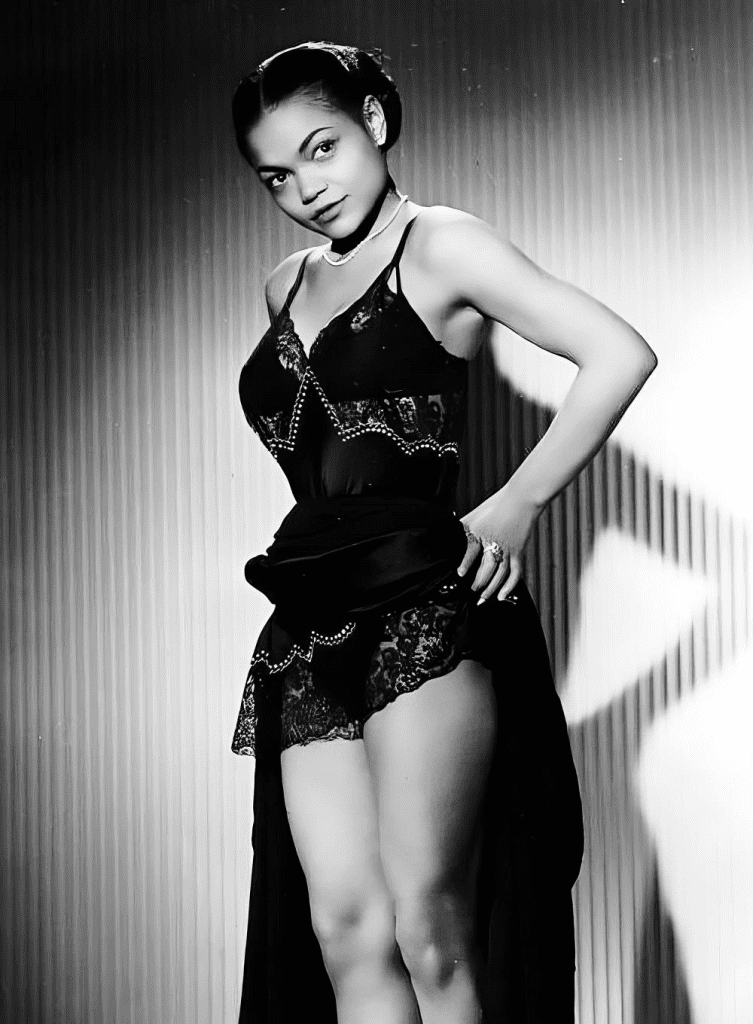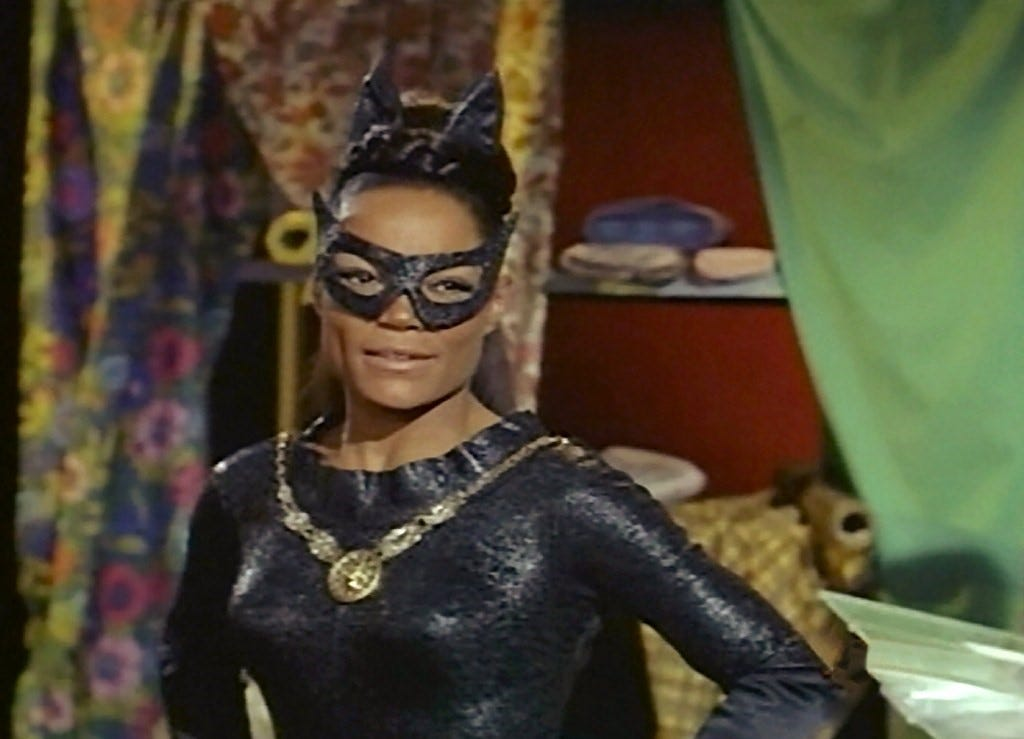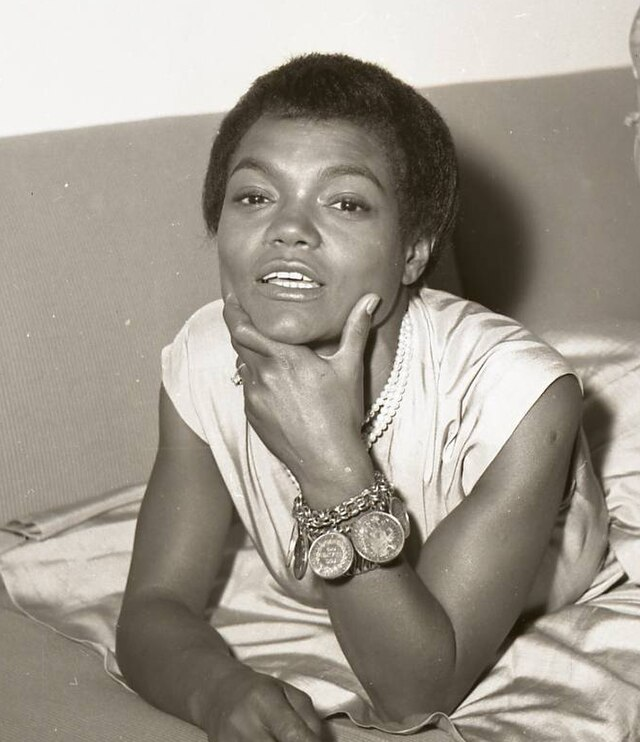Eartha Kitt is remembered for her sultry voice, iconic roles, and bold spirit. Known for timeless songs like “Santa Baby” and her unforgettable role as Catwoman in the 1960s Batman series, Kitt’s life was far more complex than many realize. She endured unimaginable struggles rooted in rejection, identity battles, and a relentless pursuit of belonging. Here’s a look at the extraordinary life of Eartha Kitt—a woman who captivated audiences while bravely navigating her own personal challenges.
A Difficult Start in South Carolina

Born in 1927 in North, South Carolina, Eartha Kitt’s childhood was marked by hardship. She was abandoned by her mother at a young age and mistreated by relatives. As a child of mixed-race heritage, Kitt faced relentless prejudice and isolation from both Black and white communities, a painful reality she carried throughout her life. Called a “yellow gal,” she was judged unfairly—a young girl bearing the weight of a world that did not accept her.
Kitt was eventually taken in by a woman she called Aunt Rosa, who expected her to work for her keep, even as a child. Tragically, Kitt witnessed her mother’s death under mysterious circumstances, believing her mother may have been poisoned. This haunting memory, coupled with the abuse she faced, left a profound impact on her early life.
From Abuse to Art: Finding Solace in Dance and Music
At around eight years old, Kitt moved to New York City to live with an aunt, and it was here that she began to discover a path out of her trauma. She attended the New York School of Performing Arts, where her natural talents emerged. By her teenage years, she had earned a scholarship with the legendary dancer Katherine Dunham, joining Dunham’s dance troupe and touring internationally.
It was during one of these tours that Kitt was discovered by acclaimed director Orson Welles, who cast her as Helen of Troy in his production of Dr. Faustus, famously calling her “the most exciting woman alive.” This opportunity helped launch her career, leading to a series of successful performances in Europe, where her raw talent and unique style took Paris by storm.
Rising to Fame: A Unique Voice in Music and Film
When Kitt returned to the United States, she quickly became a star. Her role in the 1952 Broadway revue New Faces of 1952 introduced audiences to her unique musical style, with hits like “I Want to Be Evil” and “C’est Si Bon.” Her first album, which featured the now-classic holiday song “Santa Baby,” cemented her status as a beloved performer with an edge.
Transitioning into film, Kitt starred alongside Nat King Cole in St. Louis Blues and earned critical acclaim for her role in Anna Lucasta. Her distinct voice and daring style made her one of the most memorable performers of her time, bringing a fresh, unfiltered presence to the entertainment world that audiences had never seen before.
Catwoman and Her Controversial Stand Against the Vietnam War

In 1967, Kitt made history as the first Black woman to play Catwoman in the Batman television series. With her feline grace and purring voice, Kitt’s portrayal of Catwoman became iconic, even though she only appeared in a few episodes. Her role left a lasting cultural impact, showcasing her unique ability to blend elegance with strength.
However, Kitt’s career hit a major roadblock in 1968 after she criticized the Vietnam War during a White House luncheon hosted by First Lady Lady Bird Johnson. She boldly stated, “You send the best of this country off to be shot and maimed. No wonder the kids rebel and take pot.” Her remark stunned the audience and led to an intense backlash. Blacklisted in the United States, Kitt spent years performing abroad until the 1980s, when American audiences began to embrace her once again.
A Lifelong Search for Identity and Ancestry
One of Kitt’s greatest personal struggles was the mystery surrounding her parentage. Growing up in the racially segregated South as a mixed-race child, Kitt never knew her father’s identity—a painful reality that left her with a deep sense of incompleteness. In the 1950s, Kitt attempted to access her birth certificate, but was denied. Her search continued throughout her life.
Finally, in 1997, at the age of 71, she and her daughter Kitt Shapiro gained access to the document, only to find her father’s name blacked out. This unresolved mystery haunted Kitt, highlighting her lifelong struggle with rejection and the search for a sense of belonging.
The Comeback: Rediscovering Her Voice and Power

Despite the obstacles she faced, Kitt experienced a career resurgence in the late 1970s with her role in the Broadway musical Timbuktu!, earning her a Tony Award nomination. She returned to the music charts in 1984 with the hit single “Where Is My Man.” Audiences couldn’t get enough of her captivating performances, and she continued to perform for new generations, bringing her indomitable spirit to venues across the country.
Kitt charmed younger audiences with her role as Yzma in Disney’s animated series The Emperor’s New School, which earned her a Daytime Emmy Award. Her career had come full circle, with Kitt finding success across multiple generations and proving her resilience as an artist.
A Legacy of Strength and Resilience
Eartha Kitt passed away on Christmas Day in 2008 from colon cancer. Her daughter, Kitt Shapiro, has since founded Simply Eartha, a company that celebrates Kitt’s legacy through products that reflect her strength, individuality, and wisdom.
Kitt’s legacy goes beyond her music and roles. She was a trailblazer for Black women in entertainment, breaking barriers and challenging expectations. Her experiences with prejudice, rejection, and identity struggles highlighted her resilience and inspired countless others. She lived her life unapologetically, facing adversity with a fierce independence that left a lasting impact on fans worldwide.
Conclusion: Remembering Eartha Kitt’s Unbreakable Spirit
Eartha Kitt was more than an entertainer—she was a symbol of resilience and self-assurance, embodying the courage to be oneself in the face of adversity. From her difficult beginnings in South Carolina to her iconic roles on screen and stage, Kitt’s life was a testament to the power of talent and tenacity. Orson Welles once called her “the most exciting woman alive,” and Eartha Kitt’s life proved that description true in every way. Her legacy endures as a reminder that strength, dignity, and individuality can triumph over even the most challenging circumstances.


